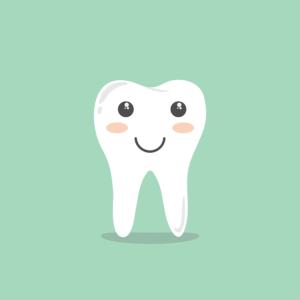
Do you know the names of all the teeth in your mouth?
Do you know the names of all the teeth in your mouth? Perhaps you have been binge-watching your favorite that has to do with forensic anthropologists fighting crime and you keep wondering why teeth are so important. While everybody knows that teeth primarily help with biting and chewing, there are other functions that they perform as well. For instance, they help you talk and help reinforce the structure of your face and jaw. Open up and say “ah!”
Incisors
The front of your mouth hosts eight thin and straight teeth. These are called your incisors; four are on top and four are on the bottom. The incisors bite into the food you eat and help with pronunciation while supporting the lips.
Canines
Next to the incisors are your canines. You have four of them, and you might have heard your dentist call them cuspids. Like incisors, they help you bite your food, but they also guide the teeth into comfortable interlocking positions whenever you close your jaws.
Premolars
Premolars are found behind the canines. They’re also called bicuspids, another term you might be familiar with from your visits to the dentist. They’re flat on top and also help to chew any incoming food. They also help maintain how high your face is. As with incisors, you have four on top and four on the bottom.
Molars
Sitting beside the premolars are the molars. These are, simply put, the widest and flattest teeth you will find in your mouth. You have twelve of them, including the wisdom teeth all the way in the back. You should use a slim toothbrush to reach and clean the wisdom teeth since they’re so hard to access. Did you know that lower molars have two roots, while upper molars have three?
Supernumerary
On some occasions, teeth will develop in odd or unexpected ways. One of the ways this happens is when supernumerary teeth appear. You normally have 32 teeth, but any extras are called supernumerary. You might have a third incisor called a mesioden, or an extra molar called a paramolar. In even rarer cases, you’ll see extra canine teeth as well.
Natal
Now let’s talk about natal teeth. These are teeth that are already in place when a baby is born – but this is also incredibly rare – once in every 2000-3000 births. They’re also called fetal teeth, and most often appear in the lower gum. However, they have no roots, so they fall out easily. Even so, doctors recommend that they be removed. This is for two reasons: they might be inhaled, or they might harm the tongue when the baby is attempting to nurse.
KEEP YOUR MOUTH HAPPY WITH ANNAPOLIS DENTAL CARE!
Whether it’s a regular check-up you need or a tooth extracted, Annapolis Dental Care has the expertise and compassion to work with you on improving your oral health. Your comfort and health are our top priorities, and so we go above and beyond to make our patients happy and give them the highest quality care. To set up an appointment today, please give us a call at 410-267-0766 or visit us online. For more oral health tips for you and your family, follow us on Facebook, Twitter, and YouTube! We are always looking for new patients, so if you live in Arnold, Annapolis, Anne Arundel County, MD, come on down!
